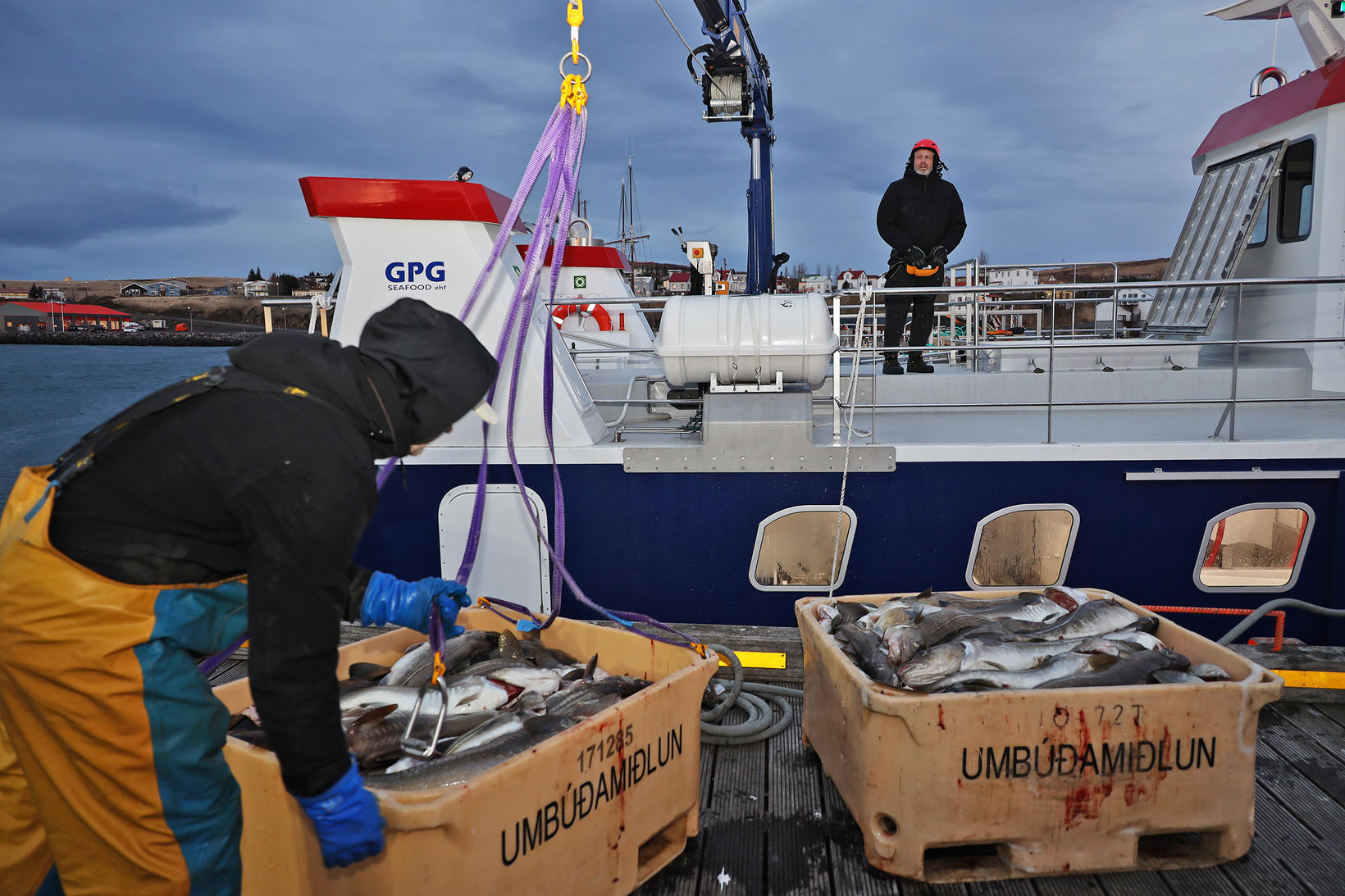Do not fear the effects of customs war

There may be little reason to fear import duties on Icelandic seafood to the United States, at least in the case of cod where it has become expensive high quality products and can find buyers who are willing to pay high prices.
This is stated by Friðleifur Friðleifsson, sales manager of frozen products at Iceland Seafood, expressed an opinion on the outlook in the US market in light of the policy of national authorities in customs affairs.
It is unclear what the trend will be in the Western customs affairs, as US President Donald Trump has twice announced new tariffs on products from Canada, Mexico and China, but then postponed them shortly after entry into force. At the same time, he has been involved in the ideas of tariffs on products from the European Union, but it is not known whether the President has been considering tariffs on products from other European countries, for example Iceland or Norway.
« If a customs duty is imposed on Icelandic cod in the American market, we are just going to raise the price, because this fish can today search for other markets. It is time for us to produce cod products for anyone. Customs duties on Icelandic products in the US market are never a celebration, I will never support the imposition of such tariffs, but I think in connection with cod we only have cards on hand that makes us simple for solving that issue if that situation arises. Even for the haddock too, ”says Fridleifur.
Prices continue to rise
Fridleifur says the cod king in marine products. « We are in a very strong position in cod in this market. We are selling a lot of expensive fresh products, necks and pieces, to the United States. This is a high quality product that is prepared here in Iceland and we are getting a very good price for it. If the situation continues like this, prices will just continue to rise. «
He also says cod is also particularly in a strong position as there is a high demand for it in many product categories in many markets, whether in Europe or North America.
« The cod can go to salted products, fresh, frozen or fish and french fries. The cod has so many contact surfaces in our marketing work that I have very little worry about cod, at least this year and even until next year. «
Should not compete with valuable types
But can cod prices rise indefinitely, are there any upper limit in terms of prices where consumers start to reject cod?
« We need to look for certain laws from the market with our products. I think it's long overdue that we try to stop feeding the world on cod. We should sell those who can pay what it takes to download this and do it. Looking at the seafaring, the production and the high -tech we have, it is quite natural that this is an expensive product. This is what we are trying to emphasize in the markets, that this is a high quality product manufactured with the best technology available. It is not necessarily natural for this product to be in all the markets of the market. «
Icelandic cod should be a selection product that does not compete with less valuable species, but is reserved for buyers with high payment capacity, in the opinion of Friðleif Friðleifsson.
mbl.is/hafþór Hreiðarsson
In other words, there is no reason to sell cod as a general consumer product in competition with far cheaper products such as Alaskan or Tilapia. Cod should be a premium product.
« Based on the quota position in Iceland today and the cuts in the Barents Sea with the Norwegians and Russians, we are in a very strong position with this type, » says Fridleifur.
It was reported in November last year that Norwegians fear that Icelanders will release them SME leading in the markets with cod. Claimed Bjørn-Erik Stabell, head of policy making and sustainability at the Norwegian Maritime Export Council, Norway Sjømatråd, convinced that Icelanders would be in a unique position.
The position second in the salmon
Philip Scrase, head of aquaculture diagnostic disputes at Consalen, recently said that in the short term, US import duties in Canada and potential tariffs on the European Union lead to the competitive position of producers outside Canada and the European Union in the US market.
Customs would lead to higher prices that will benefit producers in Norway and Chile for the short term, but Scrase warned that demand could decrease. Then there would be a lot of salmon that would look for other markets in Asia and Europe and that competition there would increase and pressure will be on prices.
« In connection with customs duties on Canada, the big question is what the Canadian salmon, which has primarily entered the US market, will seek. He is probably going to Europe or Asia. There he will meet Norwegian and Icelandic salmon, ”says Fridleifur.
However, the impact on Icelandic salmon producers will probably depend on whether Iceland will be in charge of the US authorities' customs policy or whether Iceland is completely omitted with tariff increases, he says.
« So, some will have to fill in the hole that Canadians leave behind in salmon. Icelanders stand well geographically to handle the US market with salmon. I think the salmon is the product where we are most at risk that the tariffs could bite us. If we completely let go of tariffs, then it is quite clear that we sit there that the hugely powerful market is almost alone in conjunction with the Norwegians. «








